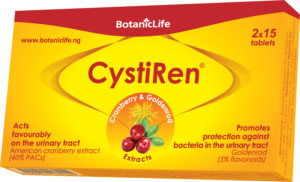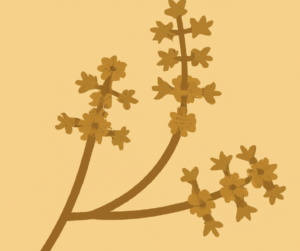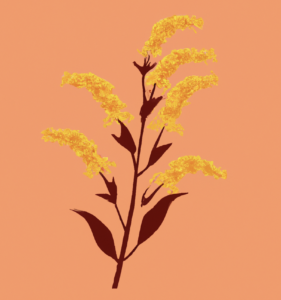⏰ Last Update: 14.08.2024
The American cranberry (Vaccinium macrocarpon) is a popular fruit, appreciated not just for its distinct tangy flavor but also for its significant health benefits. This small, bright red berry is native to North America and grows in wet, boggy areas primarily in the northeastern and northcentral parts of the United States. Its nutritional and therapeutic value has been recognized for centuries, with modern science continuing to uncover more about this fascinating plant and its potential uses.
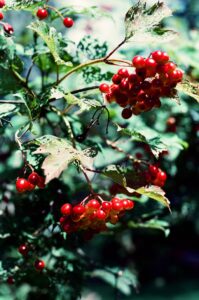
History
The history of the American cranberry dates back several centuries with its cultivation traced back to the Native Americans. They recognized the cranberry as a valuable food source and medicinal plant, using it in a variety of ways – from treating wounds and urinary conditions to serving as a food preservative and dye. European settlers quickly adopted the use of cranberries and started commercial cultivation in the early 19th century. Today, the United States is one of the largest producers of cranberries in the world, with Massachusetts and Wisconsin being the leading states.
Traditional Use
Cranberries, particularly the American cranberry, have held an esteemed position in the realm of traditional medicine. The fruit’s medicinal uses were discovered and honed by the Native American tribes who inhabited the regions where the berries were found in abundance.
Urinary Tract Health
The Native Americans revered the cranberry as a versatile curative agent. They used it extensively to treat a range of ailments related to the bladder and kidney. They recognized the cranberry’s ability to cleanse the body’s systems, particularly the urinary tract, and leveraged this property to combat infections and inflammations. By consuming cranberries in different forms, such as raw, cooked, or as a juice, they found it to be an effective remedy for urinary tract conditions.
Wound Healing
Not just the fruit, other parts of the cranberry plant were also utilized for their healing properties. The leaves and stems, rich in therapeutic compounds, were often ground into a paste and applied topically as poultices on wounds and ulcers. This traditional practice was based on the understanding that these plant components had antiseptic and healing properties that could expedite wound closure and prevent infections.
Food Preservative
Additionally, cranberries were employed for their preservative qualities. Native Americans discovered that the fruit’s high acid content could be used to prevent spoilage of food, particularly meats. The cranberries would be crushed into a paste and used to cover the meat, thus preserving it for a longer time, which was particularly useful during the harsh winter months.
Vitamin C
When European settlers arrived in North America, they quickly recognized the cranberry’s value and integrated it into their own traditional medicine practices. They identified the cranberry’s high vitamin C content, using it to ward off scurvy, a common disease amongst sailors and explorers caused by vitamin C deficiency. Consuming cranberries became a common preventative measure, and the fruit was often taken on long sea voyages for this purpose.
Thus, the cranberry’s traditional use is marked by its versatility and its benefits for various health conditions, reflecting the wisdom and resourcefulness of early cultures in utilizing nature’s bounty. Today, these traditional uses serve as a foundation for scientific research and the development of cranberry-based therapeutics.
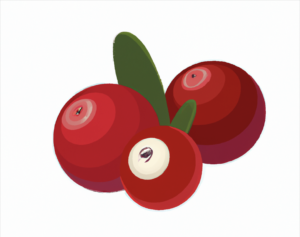
Active Constituents
Cranberries are packed with numerous nutrients and bioactive compounds that contribute to their health-promoting properties. They are rich in antioxidants, including flavonoids such as anthocyanins that give the berries their red color. Cranberries also contain unique compounds called proanthocyanidins, specifically type-A proanthocyanidins, which are thought to be responsible for their beneficial effects on urinary tract health.
Research on American cranberry’s Health Benefits
Modern scientific research has reinforced many of the traditional uses of cranberries and revealed even more potential health benefits.
Arguably the most well-known benefit of cranberries is their ability to help prevent urinary tract infections (UTIs). UTIs are infections that affect any part of the urinary system, and are often caused by the bacteria E. coli. Research has identified a particular type of compound in cranberries, known as type-A proanthocyanidins (PACs), which have been shown to inhibit the adhesion of E. coli bacteria to the urinary tract walls. This anti-adhesion activity disrupts the initial step in the infection process, effectively reducing the risk of UTIs. This scientific validation has consolidated the cranberry’s reputation as a natural, non-antibiotic approach to UTI prevention.
CystiRen
CystiRen is an expertly crafted supplement that encapsulates the potent health benefits of the American cranberry and Goldenrod. Both these plant extracts have been recognized in traditional and modern medicine for their profound impact on health, particularly concerning the urinary system.
American cranberry extract is a cornerstone of CystiRen’s formulation. This extract is a concentrated source of the cranberry’s unique type-A proanthocyanidins, which are renowned for their ability to prevent recurrent urinary tract infections (UTIs). By inhibiting harmful bacteria, primarily E. coli, from adhering to the urinary tract walls, these proanthocyanidins provide a natural defense against UTIs, enhancing urinary health and comfort.
However, CystiRen doesn’t stop at cranberries. To amplify its urinary health-supporting power, the supplement also features Goldenrod extract. Goldenrod is a plant native to North America and has a long history of use in herbal medicine for its anti-inflammatory and diuretic properties. The inclusion of Goldenrod in CystiRen’s formulation aids in flushing the urinary system, further helping to prevent urinary tract infections and promote overall urinary health.
Learn more about CystiRen on the following link: https://botaniclife.ng/product/cystiren/
Conclusion
The American cranberry is a remarkable fruit with a rich history and an array of health benefits. From traditional use to modern scientific research, the cranberry has consistently shown its therapeutic value. Supplements like CystiRen harness these benefits, offering a natural approach to support urinary tract health. The future of cranberry research holds much promise, with ongoing studies aiming to further understand and utilize this unique fruit for human health.

